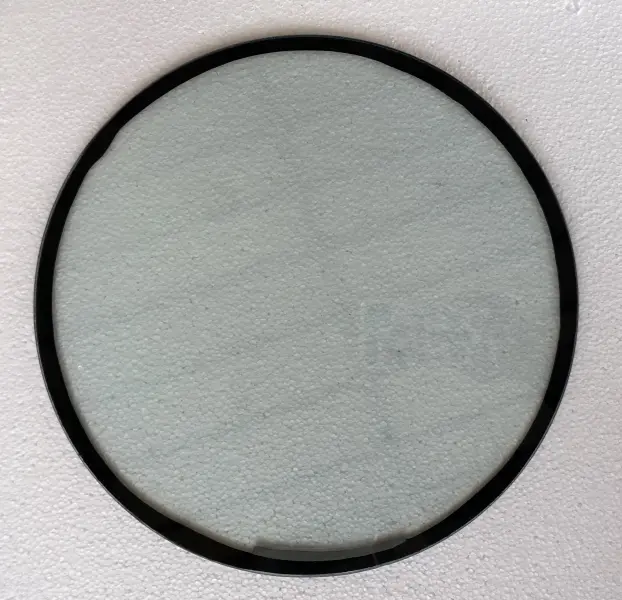
When considering energy-efficient solutions for windows and architectural glass, one of the most innovative materials available today is vacuum insulated glass (VIG), commonly referred to as vacuglass. This advanced technology offers superior thermal insulation while maintaining a slim profile, making it an attractive choice for modern building designs. But just how thick is vacuglass, and what are the benefits of its compact design?
| Property | Traditional Double Glazing | Vacuum Glass |
|---|---|---|
| Thermal Insulation | Moderate (depends on gas conductivity) | Excellent (near-zero heat transfer in vacuum) |
| Sound Insulation | Moderate (reduces high-frequency noise) | High (blocks mid-low frequency noise, e.g., traffic) |
| Thickness | Thick (20-30mm) | Ultra-thin (6-8mm) |
| Anti-Condensation | Fair (may fog with large temperature differences) | Excellent (vacuum prevents thermal bridging) |
| Lifespan | 10-20 years (sealant degradation risk) | Over 20 years (stable vacuum layer) |
| Cost | Lower (mature technology) | Higher (complex manufacturing) |
| Applications | Residential, offices | High-end buildings, labs, retrofits |

Vacuglass is engineered to be remarkably thin while delivering exceptional insulation performance. Traditional double-glazed or triple-glazed windows often require substantial thickness to achieve their insulating properties, typically ranging from 24mm to 40mm or more. In contrast, vacuglass achieves its high insulation levels with a much slimmer profile.
The standard thickness of vacuglass units typically ranges from 6mm to 12mm, depending on the specific application and insulation requirements. This compact design is made possible by the vacuum-sealed space between two layers of glass, which eliminates the need for additional glass panes or bulky inert gas fills.
Enhanced Aesthetic Appeal
One of the most significant advantages of vacuglass is its slim profile. This allows for a more minimalist and contemporary design, making it ideal for modern architectural projects where aesthetics are crucial. Whether used in windows, curtain walls, or doors, vacuglass can seamlessly integrate into various design styles without compromising on performance.
Superior Insulation
Despite its thinness, vacuglass provides exceptional thermal insulation. The vacuum-sealed space between the glass layers effectively reduces heat transfer, resulting in a U-value as low as 0.4 W/m²K. This means vacuglass can significantly reduce heat loss in winter and heat gain in summer, leading to substantial energy savings and improved indoor comfort. In simpler terms, a lower U-value indicates better insulation, making vacuglass highly efficient at maintaining a comfortable indoor temperature.
Weight Reduction
The compact design of vacuglass also translates to a lighter weight compared to traditional double-glazed or triple-glazed windows. This makes installation easier and reduces the structural load on buildings, especially for large-scale projects like high-rise buildings or expansive glass facades.
Design Flexibility
The thin profile of vacuglass allows for greater design flexibility. It can be custom-fabricated to meet specific project requirements, including different sizes, shapes, and configurations. This versatility makes it suitable for a wide range of applications, from residential windows to commercial buildings and even greenhouses.
Due to its unique combination of thinness and high insulation performance, vacuglass is suitable for various applications:
Residential Buildings
Vacuglass is an excellent choice for windows and doors, providing superior insulation while maintaining a sleek and modern appearance.
Commercial Buildings
In commercial settings, vacuglass is ideal for curtain walls, storefronts, and office partitions. Its slim profile and high insulation properties help create energy-efficient and aesthetically pleasing environments.
Greenhouses and Solar Projects
For greenhouses and solar applications, vacuglass can help retain heat while allowing maximum light transmission. Its durability and long-term performance make it a reliable choice for sustainable projects.
Vacuglass offers a remarkable balance between thinness and high insulation performance. With a typical thickness ranging from 6mm to 12mm, vacuglass provides superior thermal insulation while maintaining a slim and lightweight profile. This makes it an ideal solution for modern architectural projects that prioritize aesthetics, energy efficiency, and design flexibility.
Ready to enhance your next project with vacuglass? Contact our experts at evergreen glass today by emailing info@evergreenglass.com. We specialize in manufacturing high-quality vacuglass solutions tailored to your specific needs. Our commitment to innovation and customer service ensures that you receive the best possible products and support.